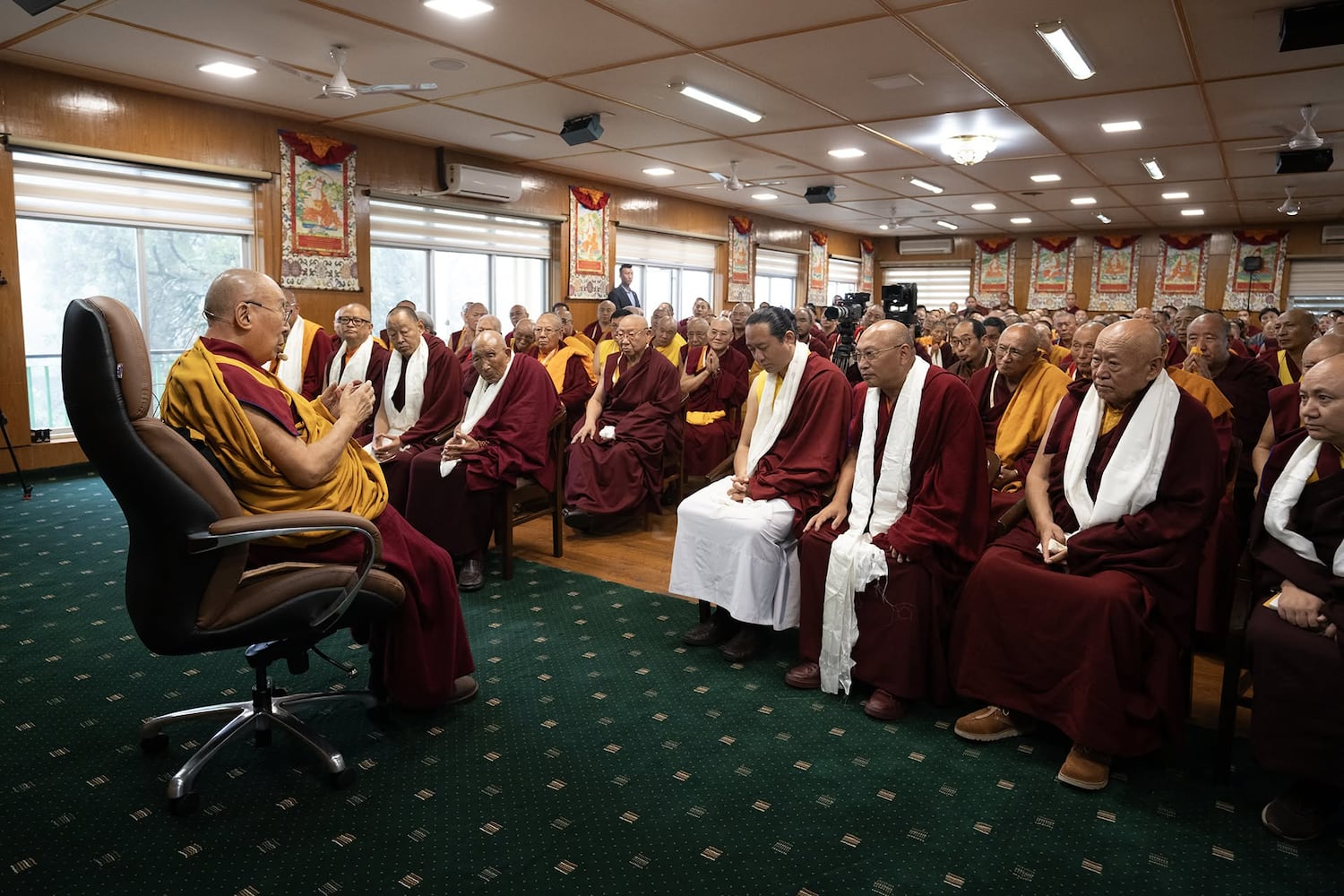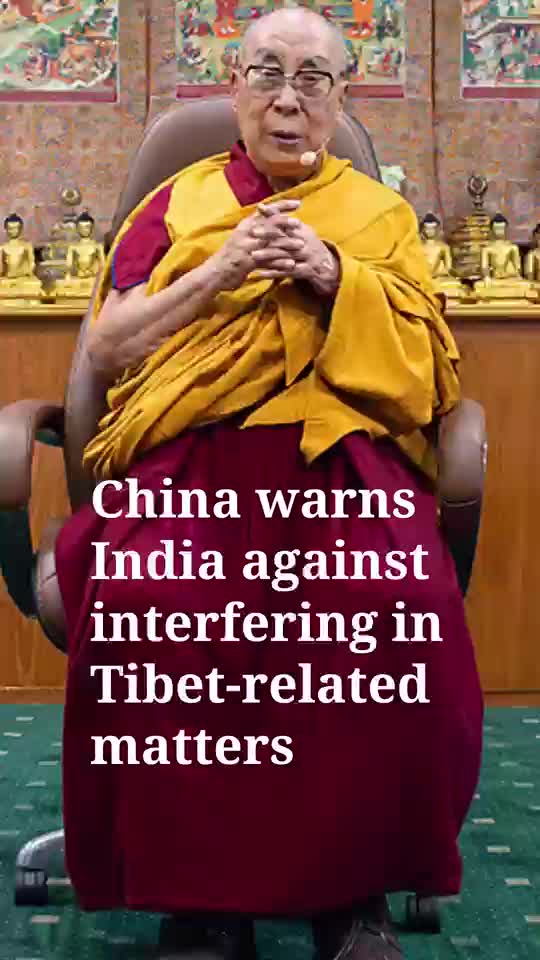China warned India on Friday against interfering in Tibet-related matters after an Indian minister supported the Dalai Lama’s statement that his successor should be chosen by a Tibetan nonprofit group, rejecting moves by China to steer his succession.
“No one has the right to interfere or decide who the successor of His Holiness the Dalai Lama will be,” said Kiren Rijiju, India’s minister for minority affairs.
China’s foreign ministry urged India to be prudent in its words and actions.
“We hope the Indian side will fully understand the highly sensitive nature of Tibet-related issues, recognize the anti-China separatist nature of the 14th Dalai Lama,” said spokesperson Mao Ning.
India’s foreign ministry spokesman Shri Randhir Jaiswal later on Friday released a statement saying, “Government of India does not take any position or speak on matters concerning beliefs and practices of faith and religion.”

The Dalai Lama, who fled to India in 1959, stated on Wednesday that upon his death, he would be reincarnated as the next spiritual leader and that only the Gaden Phodrang Trust would be authorized to identify his successor.
Beijing maintains it has the right to approve the Dalai Lama’s successor.
The Inter-Parliamentary Alliance on China (IPAC) said in a statement: “The process of reincarnation for Tibetan Buddhists is a sacred tradition. Any attempt by the CCP to interfere in this spiritual matter is an unacceptable violation of religious liberty and must be swiftly condemned by the international community.”
Penpa Tsering, president of the Tibetan government in exile, spoke to reporters in Dharamsala at the end of the three-day conference of Tibetan religious leaders, where the Dalai Lama affirmed his succession plans.
“If China tries to use this in any way, in any means, we will not recognize it. In the future also we will not accept any of China’s choices.”
Reporting by Dawa Dolma and Tenzin Woser in Dharamsala; additional reporting from Reuters; edited by Charlie Dharapak




